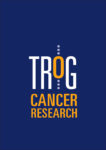ASPIRE Background
The South Australian Health and Medical Research Institute (SAHMRI) – The Australian Bragg Centre for Proton Therapy and Research (ABCPTR) parent company, has successfully applied for certain cancer tumour types treated with proton beam therapy (PBT) to be listed on the Medicare Benefits Schedule (MBS).
As part of this application process the Medical Services Advisory Committee (MSAC) noted the uncertainty in the cost-utility modelling associated with PBT and recommended that a national registry be established to provide increased certainty around the claim of superior safety of PBT relative to conventional photon radiotherapy (PRT).
ASPIRE: Australian Particle Therapy Clinical Quality Registry has been established in response to the above requirement.
The application details and public summary document can be found here
Vision
The Australian Bragg Centre for Proton Therapy and Research (ABCPTR) is dedicated to becoming a centre of national excellence for paediatric, adolescent and adult health outcomes for patients with a cancer diagnosis that require radiation therapy.
This will be achieved in partnership with national radiotherapy centres, key stakeholders and leveraging the medical research capabilities of SAHMRI.
Through the ASPIRE registry, the Bragg centre intends to ensure equity of access for those eligible to receive proton therapy. Provide access to evidence-based research practices, resulting in the highest quality clinical care offered to our patients.
Overview of the Australian Particle Therapy Clinical Quality Registry - ASPIRE
The Australian Particle Therapy Clinical Quality Registry (ASPIRE) is a prospective, observational, longitudinal study of paediatric, adolescent, young adult and rare adult tumour patients from a select group of tumour streams treated with radiation therapy. Comparing the long-term toxicities of photon and proton radiation therapy.
The aim of the ASPIRE registry is to enroll patients who have been treated with radiation therapy in order to better understand and compare the short and long-term benefits of the different types of radiotherapy. The information collected from this study will help us and other researchers learn more about radiation treatment.
The purpose of the registry is to collect patient information (like age, gender, post code) and clinical data (such as diagnosis, treatments and side effects) from patients who receive radiation therapy.
There are no clinical interventions required for participants enrolled onto the registry. All enrolled participants will receive treatment, and follow-up care as pre-determined by their treating clinician, in accordance with the standard of care at the treating institution. All treatment interventions that participants receive, and all outcomes will be recorded on the registry database from the patient medical record.
It is hoped that the development of this registry will assist in describing the long-term effects and disease control outcomes for patients having radiotherapy as part of their cancer treatment.
Ethics & Site Approvals
The ASPIRE protocol and participant information sheet received ethical approval from the Women’s and Children’s Health Network (WCHN) Human Research Ethics Committee (HREC) under the National Mutual Agreement (NMA) scheme on February 2nd, 2022 – 2021/HRE00394.
Followed by a site-specific agreement which was approved for participant recruitment to commence in the Department of Radiation Oncology at the Royal Adelaide Hospital in March 2022.
The registry commenced its national roll out in April 2022, with approval sought from the Northern Territory Government to commence ethics approval for participant recruitment at the Alan Walker Cancer Care Centre (AWCCC) – Royal Darwin Hospital. A Site-Specific Agreement (SSA) is in the final stages of approval currently for this site.
Endorsement
Trans-Tasman Radiation Oncology Group – TROG Cancer Research, is dedicated to improving the way radiation therapy is delivered to cancer patients with ongoing scientific research, clinical trials, and cutting-edge technology.
TROG Cancer Research are proud collaborators of the Australian Bragg Centre for Proton Therapy and Research and have officially endorsed the Australian Particle Therapy Clinical Quality Registry – ASPIRE. TROG 21.12
Learn more about the great work being done by TROG Cancer Research on their website: https://trog.com.au/
Partners and Support
Grant funding has been graciously provided by the Hospital Research Foundation Group for the establishment of the Australian Particle Therapy Clinical Quality Registry (ASPIRE).The funding provides provisions for registry staffing and the necessary ICT infrastructure to support the registry until July 2024.
More information on the impact the Hospital Research Foundation Group has in medical research and patient care across all South Australian public hospitals, universities and medical research centres can be found here 🥊 https://hospitalresearch.org.au/

